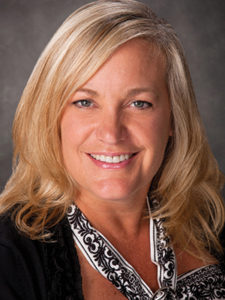
Clinical trials offer benefits to patients and providers, but getting started as a principal investigator can be a daunting task for physicians.
An ACR/ARHP combined session on Monday morning will bring together experts on the business and legal aspects of the process and provide helpful tools for those interested in starting a clinical trials department.How to Set Up a Clinical Trials Center will take place from 7:30 – 8:30 am in Room W476.
Lisa Kastanek, RN, CCRC, Managing Partner of Physician Research Collaboration, a multi-discipline clinical research company in Lincoln, NE, will start with “The Business Side to Setting Up a Clinical Trials Department.”
Clinical trials are a valuable part of the full clinical picture, Kastanek said.
“Clinical trials give patients the option to try something in research that they wouldn’t have access to otherwise,” she said. “There’s a financial advantage for patients as well, because the study covers the cost of visits. There’s an educational piece for patients, too. Patients get more time with providers and receive extensive education when they participate in studies. In addition, as a physician, clinical trials put you on the cutting-edge of science. Participating in clinical trials help the practitioners expand their therapeutic options.”
Kastanek said she hopes to give attendees an overview of the process for getting started in clinical trials since they provide many benefits for patients and providers.
“Clinical trial conduct has gotten complex, but this session will outline the ABCs for providers,” she said. “The first thing I’ll suggest is that providers really think about why they want to participate in a clinical trial. When things get frustrating, you’ll ask yourself why you decided to do this. If you’re doing it for the patient, it’s easier to deal with frustration.”
Kastanek also recommends that physicians talk to peers who are experienced in clinical trials to understand the pros and cons before they get too far into the process.
“There’s a lot to consider before you jump in,” she said. “You have to look at the regulations. You have to know what your responsibilities as a researcher are. You need to understand the time commitments, the risks and the rewards.”
As part of her talk, she’ll review the requirements for principal researchers.
“You can’t understand the risks if you don’t know the responsibilities,” she said. “There are some responsibilities you cannot delegate. You have to oversee what’s being done. You have to know what it takes. You don’t have to do everything, but you do have to direct it.”
Kastanek will then discuss the costs involved with participating in a clinical trial, including those associated with preparing the site, staffing, and more. She will also give attendees advice for negotiating a clinical trial agreement and how to get a study as a novice investigator.
“The process for getting involved in research is going to vary between sites,” she said. “Each site is an individual business with unique processes and procedures, so one template does not fit everyone. But once you have the basic information you need, which this session will provide, then you can go about figuring out how to fit it into your world.”

Donah Z. Crawford, MS, who has more than 20 years of experience as a research coordinator, most recently at the Arthritis Group in Philadelphia, PA, will present “Legal Requirements and Ethical Aspects of Setting Up a Clinical Trials Center.”
“Conducting a clinical trial provides ahead-of-the-curve training in new treatment options for rheumatologists and their staff,” Crawford said. “It also gives patients with no, or poor insurance coverage, access to free care. However, rheumatologists, as the principle investigators, are legally responsible for conducting clinical trials according to the regulations established by the FDA and other governing agencies. It’s important to understand the legal and ethical issues involved in clinical trials.”
Crawford will review those legal and ethical issues and discuss the importance of things such as site assessments to determine if a site can meet the necessary criteria and provide adequate staff.
Crawford said this session would be helpful for novice and experienced investigators alike.
“Even if you are currently conducting clinical trials, this session is a good refresher of what you need to keep your site legal,” she said.
